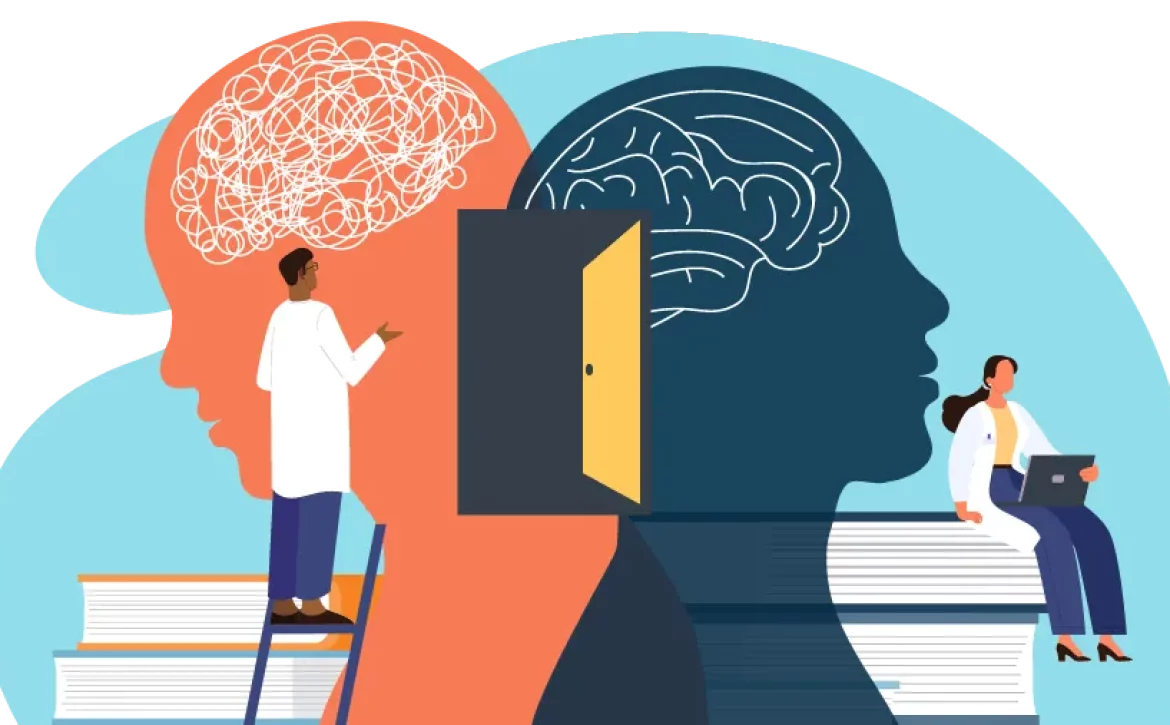How to Cope with a Grown Child with Mental Illness
A substantial number of children and young adults are currently facing mental health disorders. The American Psychiatric Association has noted that 50% of mental health conditions begin by age 14, and by age 25, this number increases to 75%, indicating a significant uptick over the recent decade. Supporting a grown child with mental illness is a complex journey, and at Novu Wellness in Sugar Hill, Georgia, we aim to lighten that load. Recognizing signs and maintaining open, empathetic communication are pivotal first steps. Empowerment through active participation in their treatment, seeking professional help, and finding both individual and parental support are key. Connecting your child with support groups and encouraging professional intervention can significantly impact their recovery journey. Remember, you’re not navigating this alone. Novu Wellness offers comprehensive support for families, emphasizing collaboration in care. Reaching out for help is a courageous step towards healing for both you and your child. For more guidance and support options, visit Novu Wellness. Together, we can journey towards a hopeful future.
Using Non-Judgmental Support
Offering non-judgmental support to a grown child with mental illness is pivotal. It involves open, empathetic communication, where active listening takes precedence over unsolicited advice. Creating a safe environment allows your child to freely discuss their emotions and challenges, reinforcing trust and strengthening your relationship. Demonstrating empathy and validating their feelings are key, ensuring they feel supported and less isolated.
Familiarizing yourself with mental health resources, such as the National Alliance on Mental Illness (NAMI), can enhance your understanding and approach to support. Sharing personal stories from platforms like The Mighty can also offer comfort and a sense of community. A non-judgmental attitude not only supports your child in navigating their mental health journey but also deepens your connection, fostering a relationship built on mutual respect and understanding.
Empowering Grown Child with Mental Illness
As your child approaches adulthood, it’s crucial to prepare a strategy together for managing their mental health, ensuring a smoother transition into independence. Engaging in conversations about medications, counseling options, and the risks of self-medication and suicide is essential. Discussing the importance of positive lifestyle choices, such as a balanced diet, regular exercise, sufficient sleep, and avoiding substance abuse, will equip them for success. Additionally, consider addressing how to navigate mental health challenges while at college. This preparation can provide them with the tools they need for a healthy, balanced life post-18.
Encouraging your child to set realistic goals and make decisions independently enhances their confidence and sense of ownership over their well-being, and allowing them to navigate their choices fosters independence and problem-solving skills. Celebrating their achievements and providing support during setbacks strengthens their resolve and self-esteem. This process of empowerment not only aids in their recovery but also deepens your relationship, building a foundation of trust, respect, and mutual growth. Encouraging autonomy while being a supportive presence helps your child feel capable and prepared to manage their mental health journey.
Finding Support
Seeking support plays a key role in managing mental health for both individuals experiencing mental illness and their caregivers. For your loved one, exploring local and online support groups tailored to their specific mental health challenges is essential. Joining such communities offers a unique space for sharing experiences and receiving empathy, significantly easing the sense of isolation. Platforms like NAMI (National Alliance on Mental Illness) provide access to a wide range of groups, where your loved one can find others navigating similar paths.
For caregivers, the emotional journey of providing support can be overwhelming. Finding your own support network is crucial to maintaining your well-being. Support groups dedicated to families and caregivers of those with mental health issues offer a safe space to express your feelings, share experiences, and learn effective coping strategies from those who truly understand your situation. Engaging with these groups, whether in person or online, can provide a sense of community and reassurance, reminding you that you’re not alone in your caregiving role. Remember, building a supportive environment for both you and your loved one is a vital step towards a healthier, more balanced life.
Encouraging Them to Seek Help
Encouraging your adult child to seek professional help is a delicate but crucial step in their mental health journey. Start conversations about the positive impact of therapy and, when appropriate, medication. Highlight how professional guidance can offer new strategies for managing mental health effectively. Share stories or articles from trusted sources that showcase successful recovery journeys. This can help demystify the therapy process and reduce any stigma they might feel. Remember, the goal is to make them feel supported and understood, not pressured. It’s about opening a door to a potentially life-changing path with empathy and insight.
Contact Us For Support
Navigating mental health with your grown child can be complex, but you’re not alone. At Novu Wellness, our compassionate team offers a spectrum of services tailored for individuals and families facing mental health struggles. Embrace the journey towards healing with our support. For more information on how we can assist, or to become a part of our supportive community, contact us today. Together, let’s take steps towards a healthier, more fulfilling future.







